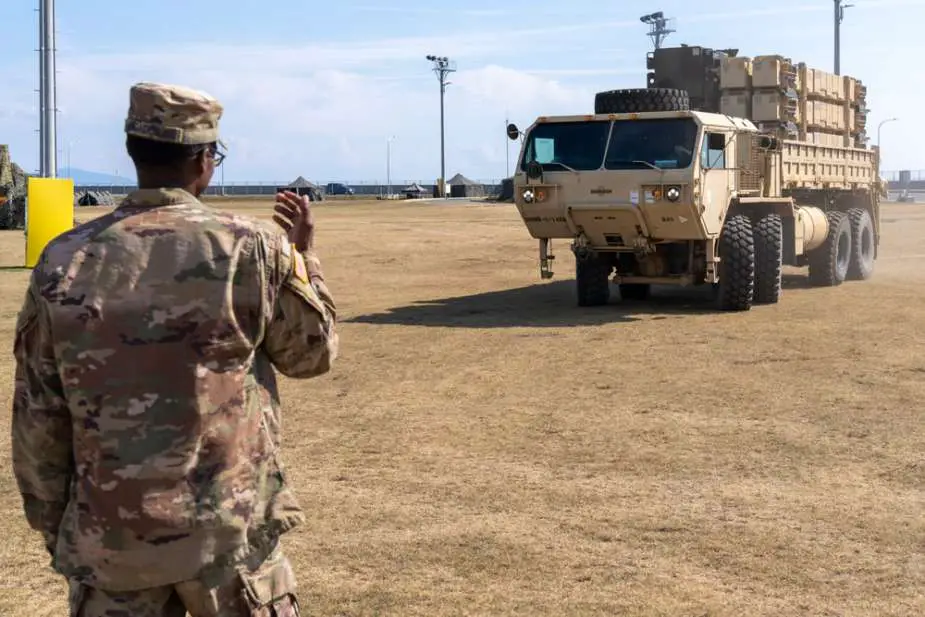Breaking news
Israel delays Gaza offensive while US ramps up air defense in the region.
According to the New York Post on October 25, 2023, Israel has opted to delay its imminent ground offensive in Gaza to facilitate the deployment of missile defense systems by the United States. This decision is driven by concerns about potential Iran-backed attacks targeting American troops stationed in the Middle East.
Follow Army Recognition on Google News at this link

An American soldier guides a HEMTT A4 Guided Missile Transporter to reload a Patriot air defense system during the Resolute Dragon 23 exercise in Japan (Picture source: US DoD)
According to defense officials, the installation of these air defense systems is expected to be completed by the end of this week, as reported by the Wall Street Journal. The Wall Street Journal's report also outlines Israel's decision to postpone the military action, taking into account several factors. These include considerations related to delivering humanitarian aid to the southern part of the Gaza Strip and ongoing efforts to secure the release of approximately 200 hostages held by Hamas.
Israeli Prime Minister Benjamin Netanyahu, during a national address, did not confirm the specific motivations behind the postponement of the long-anticipated Gaza offensive. However, he underscored the active preparations being made by the Israeli military for an eventual ground incursion.
The Israeli Defense Forces have already carried out two armored raids in the northern zone of Gaza, the first on the night of 25 to 26 October 2023, and a second on the following night. The operations aimed to neutralize threats and assess the combat capabilities and weapons of the Hamas group.
Netanyahu emphasized that detailed information regarding the timing, approach, and scale of the operation is not being disclosed to the public, affirming that such matters are intentionally kept confidential. He also reiterated that the timing of the operation had been collectively determined by Israel's war cabinet and the chief of staff.
The United States is currently working to deploy over ten air defense systems across multiple Middle Eastern nations, including Iraq, Syria, Kuwait, Jordan, Saudi Arabia, and the United Arab Emirates. This deployment is in response to escalating tensions in the region and the heightened risk of missile and rocket attacks.
President Biden, during a White House press conference, maintained that he did not issue a demand for Israel to delay its ground offensive. Nevertheless, senior administration officials have expressed concerns regarding the potential hasty launch of an Israeli attack. They have highlighted the critical importance of missile defense cover and the safety of the hostages held by Hamas.
The United States has already deployed a Terminal High Altitude Area Defense (THAAD) battery in the Middle East, alongside Patriot missile system batteries. These measures were taken in response to repeated attacks on American and coalition forces. Additionally, a squadron of F-16 fighter jets has been stationed in the region to bolster the defensive capabilities of US forces.
Since October 17, approximately two dozen US troops have sustained minor injuries in at least ten drone and rocket attacks, with three occurring in Syria and the rest in Iraq. These attacks have been attributed to Tehran's proxies. US defense officials anticipate an increase in the frequency of such attacks as Israel proceeds with its planned incursion into Gaza.
To support Israel's defense efforts, the Pentagon is supplying two additional Iron Dome air defense systems, in addition to precision-guided munitions, small-diameter bombs, artillery, ammunition, interceptors, and other critical equipment. It's worth noting that US forces in the region primarily focus on anti-ISIS missions and providing assistance in hostage recovery, rather than direct involvement in combat operations alongside Israel.


























